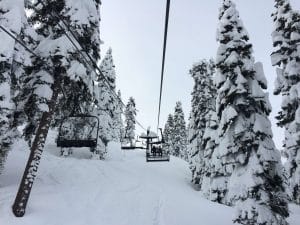California Tribes Challenge Cardroom Regulations in Legal Battle

A heated legal dispute is unfolding in California as tribal nations challenge local cardrooms over their ability to offer certain “banked” card games. The lawsuit, sparked by Senate Bill 549, centers around whether cardrooms are violating tribal gaming exclusivity agreements by using third-party proposition player services (TPPPs) to facilitate games like blackjack and baccarat. While tribes argue that these games should only be allowed in tribal casinos, cardrooms insist they are operating within state regulations.
For ordinary consumers, many of whom prefer gambling online these days anyway, staying abreast of these developments can be challenging. Experts at platforms like CasinoBeats help to provide insights into gaming regulations and industry trends, including the rise of no-verification casinos. Sites like these allow players to engage in real-money gaming with minimal identity checks, which many players who are privacy-conscious now prefer.
According to Matt Bastock, privacy-focused gaming platforms now offer a seamless and secure experience, emphasizing fast sign-ups and instant payouts. This evolving landscape highlights the importance of clear and consistent regulations—something now at the heart of California’s cardroom dispute.
This lawsuit is the latest chapter in a long-running battle over gaming rights in California. Tribal casinos have historically held exclusive rights to operate banked card games, which means players bet against the house rather than each other. However, non-tribal cardrooms have found ways to offer similar experiences by employing third-party proposition players—contracted individuals who act as neutral bankers to oversee games. Tribal leaders argue that this practice undermines the legal exclusivity of tribal gaming, cutting into their revenue while sidestepping the regulatory framework that governs them.
In September 2024, Governor Gavin Newsom signed SB 549, granting tribal nations the authority to sue cardrooms over these contested games. The tribes claim that by allowing TPPPs to act as neutral bankers, cardrooms are effectively running house-banked games—something state law reserves for tribal casinos. They argue this practice not only violates their gaming agreements but also costs them millions in lost revenue each year.
The battle for tribal gaming exclusivity dates back to the 1980s and 1990s when California tribes fought for sovereignty over casino operations. In 1988, the federal Indian Gaming Regulatory Act (IGRA) was enacted, setting the foundation for state-tribal gaming agreements. In the years that followed, California tribes negotiated compacts with the state to secure exclusive rights to offer slot machines and house-banked card games. These agreements generate billions in revenue for tribal governments, funding education, healthcare, and infrastructure in Native communities.
However, cardrooms have consistently challenged the tribes’ exclusivity by offering games that operate within legal gray areas. The use of TPPPs in cardrooms was first approved by the California Gambling Control Commission (CGCC) decades ago, allowing them to function under specific regulatory conditions. This ongoing tension has led to multiple lawsuits and legislative battles, with tribes pushing for stricter enforcement of their exclusivity rights.
The lawsuit extends beyond legal arguments; it has major economic implications, particularly for cities that rely on cardroom revenue. One striking example is Hawaiian Gardens, the smallest city in Los Angeles County, which spans just one square mile. The city’s economy is deeply tied to The Gardens Casino, which contributes an estimated 70-80% of the city’s general fund.
During the COVID-19 pandemic, The Gardens Casino was temporarily shut down, leading to a $9 million budget shortfall and forcing the city to lay off 40% of its workforce. The potential loss of revenue from a ruling against cardrooms could have similar consequences, putting essential services—such as public safety, infrastructure, and community programs—at risk.
But Hawaiian Gardens is not the only city at stake. More than 70 communities in California benefit from cardroom tax revenue. Cities like Commerce, Bell Gardens, and San Jose also depend on these funds to sustain public programs. A ruling against cardrooms could force them to cut jobs, reduce city services, or find alternative revenue sources.
Opponents of SB 549, including representatives from cardrooms and local government officials, argue that the law is one-sided and could set a dangerous precedent. The California Cardroom Alliance has voiced concerns that granting tribes the ability to sue cardrooms—without allowing cardrooms to take similar legal action against tribal casinos—creates an unfair regulatory environment.
Regardless of the final verdict, this case underscores the ongoing tension between tribal sovereignty, local economies, and the evolution of gaming laws. The outcome could influence national debates on gaming exclusivity, particularly in states where tribal casinos hold similar rights.

Support Local Journalism

Support Local Journalism
Readers around the Lake Tahoe Basin and beyond make the Tahoe Tribune's work possible. Your financial contribution supports our efforts to deliver quality, locally relevant journalism.
Now more than ever, your support is critical to help us keep our community informed about the evolving coronavirus pandemic and the impact it is having locally. Every contribution, however large or small, will make a difference.
Your donation will help us continue to cover COVID-19 and our other vital local news.









